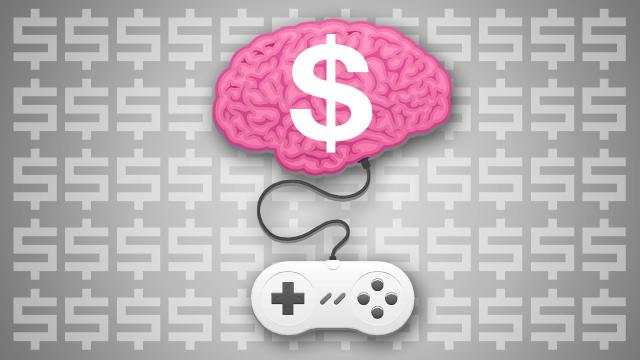It’s the end of the month, and you look at the budget you created to help yourself control your spending. Your stomach sinks when you see that you went over by $200. And you didn’t even contribute towards your savings or retirement accounts. With a guilty heart, you vow to do better next month. Then the pattern repeats again, and again, and again…
This post originally appeared on ReadyForZero.
If you’ve had this experience, you’re probably asking yourself, how do I make a budget stick? The truth is, it requires that you master the “mental game” of budgeting. Budgets are a tool to help you, but they only work if you can get in the right mindset. Below, we offer tips on how to do exactly that.
Pay Yourself First
If you find yourself not contributing to your savings or retirement accounts at the end of the month — or not paying your extra debt payments — because you spent the funds elsewhere, here’s an easy tip. Pay your savings and retirement accounts first.
How? Just automate the contributions so the proper amount gets transferred when each pay comes in. That way, those accounts will always be paid first, and I’m willing to be that you often won’t even miss the contributions once they magically disappear into the safety of your savings and retirement accounts.
Accept You’ll Always Blow At Least One Category
Trust me, as a veteran of many a hopeful budget, there’s always at least one category where you’ll grossly underestimate your spending. And for the most part, that’s ok. The key is not getting discouraged when this happens and taking the initiative to adjust your budget as necessary. Unexpected expenses always come up. Look at what categories you’re overspending, and why. It could be that you’ve underestimated the amount you actually need. Or on the other hand it could be that you consistently find your eye caught by some fanciful new thing. Whatever the reason is, once you understand it, you can take action to address it.
Give Yourself An Allowance
Budgets often feel like punishment, but they don’t have to be. Here’s how to make your budget feel more empowering and fun. Each month, include in your budget a little “mad money”. This is the money you give yourself permission to spend on whatever you want. No guilt necessary. Personally, I recommend that you keep your allowance in cash and don’t track what you spend. By letting yourself blow off some steam this way — without guilt — it’s much easier to stay disciplined.
Cut Up Your Credit Cards
Credit cards feel like free money, but the bills that come are all too real. Studies have shown that credit cards increase spending. In fact, on credit, people are willing to spend between 50 per cent and 200 per cent more. That’s a huge difference, and your budget won’t forgive you for it.
The solution? If you find yourself making larger purchases with credit, try using a debit card instead (with online tracking) or try switching to an all-cash budget. The physical act of handing over money and seeing the dwindling amount of bills in your wallet has a real impact on how much you spend. In fact, going to cash has been shown to increase savings by 20 per cent, on average, as spenders carefully think through purchases before letting go of precious dollar bills instead of nonchalantly handing over their convenient, pain-free credit card.
Wait 48 Hours
Most impulse buys are just that — impulsive. Even if you ask yourself in the moment “Do I really need this?”, you might just say yes! To counteract purchases that you probably don’t need, wait 48 hours before buying, especially if the amount involved is large. It’s very likely that after the waiting time, the desire you feel will fade and perhaps you’ll completely forget about what you wanted at that time.
“Own” It Virtually
Advertising creates a need to do something about whatever it is the ad is selling. They have to make you feel so displeased with your current situation that you take some action. That action usually involves making a purchase. But you can help yourself by “scratching that itch” without actually making a purchase.
How? Add the desired item to an Amazon wish list or pin it onto your Pinterest boards. (Or if you’re old fashioned, take out your Holiday wish list and write it down using good old pen and paper.) Taking action this way fulfils the itch to do something about your desire to own it, without you actually making a purchase.
How to Master the “Mental Game” of Sticking to a Budget [ReadyForZero]
Fiona Lee is a guest blogger for ReadyForZero. She’s a freelance writer and a frugalista who loves discovering new ways to save money, especially in expensive cities. After living in New York and Beijing, she now makes her home in San Francisco. See more of her work at fionaklee.com.

Comments
One response to “How To Master The Mental Game Of Sticking To A Budget”
As someone who has recently started to try to get fit and get out of debt, I have to say that I am loving all of the posts about running and budgeting 🙂
Purely by crazy random happenstance, I came across YNAB (http://www.youneedabudget.com/) about four months ago. It’s totally changed my mindset when it comes to money and spending.